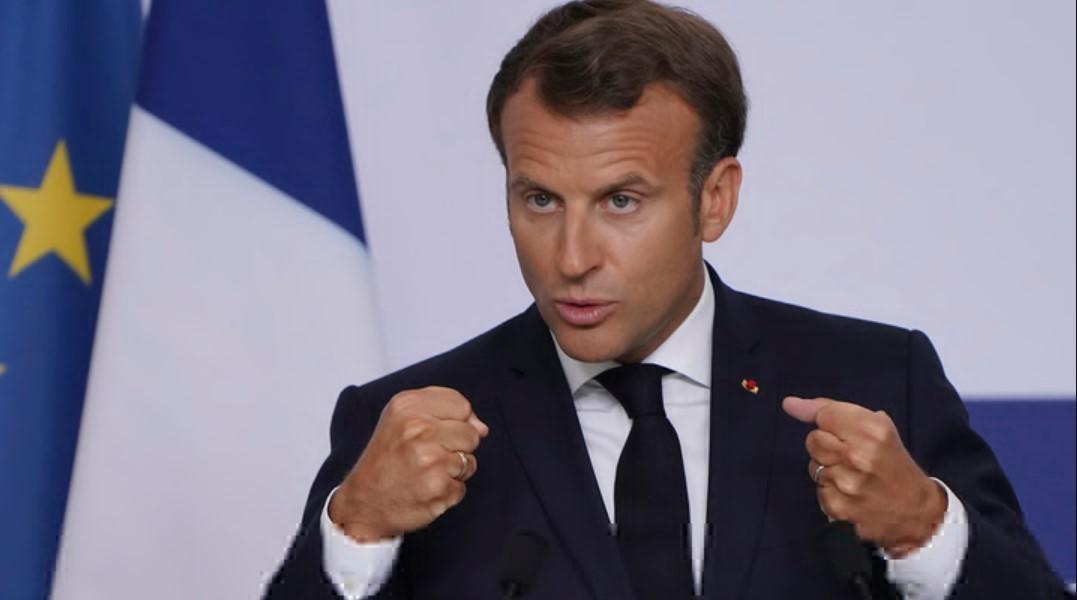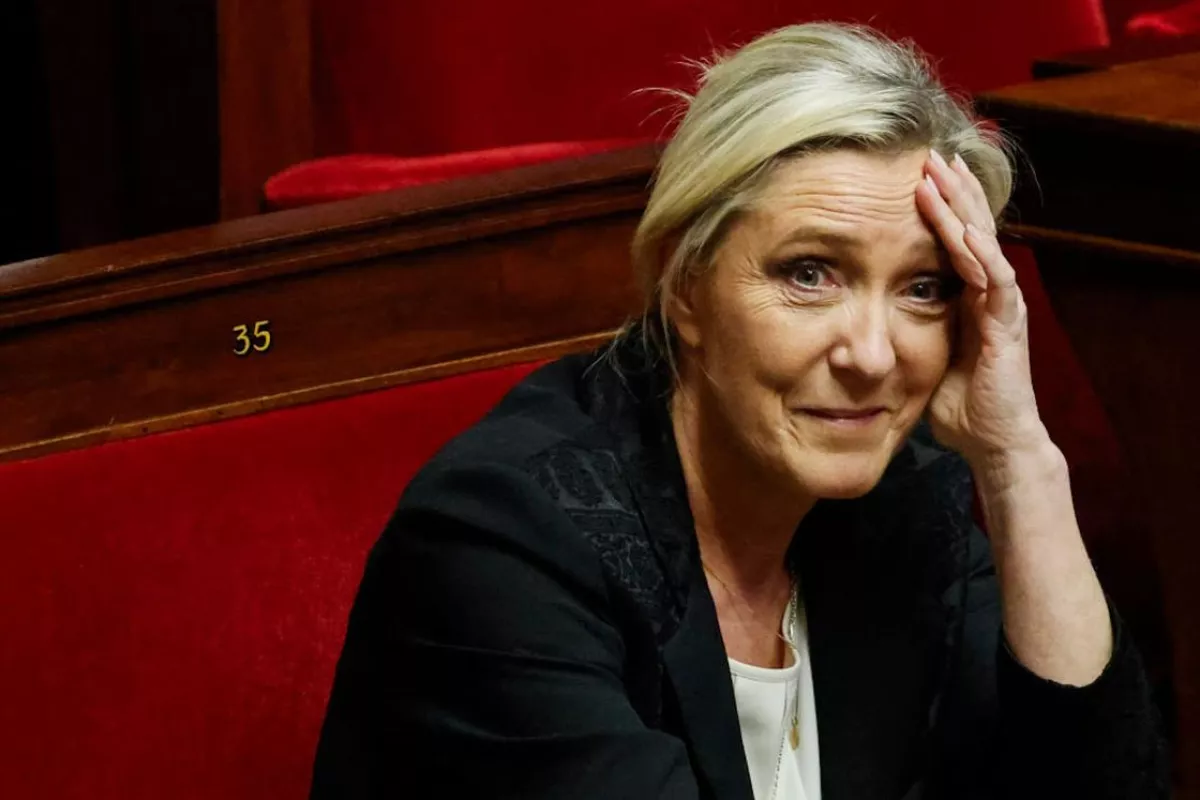France's tumultuous 2024: Political chaos and economic crisis looming over 2025 Article by Euractiv
A recent article on the European news site Euractiv delves into the bleak outcomes of 2024 for France, highlighting the country’s unprecedented political and economic challenges as it heads into 2025. Caliber.Az provides an in-depth analysis of these challenges, examining the instability in both domestic governance and fiscal policy that threatens France’s future stability.
France’s situation in 2024 is depicted as one of political chaos, with the country facing two elections, multiple government collapses, and a growing fiscal deficit that risks undermining its future stability. This period of turmoil stands in stark contrast to the optimistic expectations set in late 2023 by President Emmanuel Macron, who had envisioned 2024 as a “millésime,” a stellar year for France marked by significant events such as the Olympic Games, the reopening of Notre Dame Cathedral, and the 80th anniversary of the Normandy Landings. Instead, the country finds itself grappling with severe political fragmentation and a rapidly escalating financial crisis.
Political instability
The political landscape in France is currently in disarray, as evidenced by the sharp decline in the support for President Macron’s centre coalition. The 2024 European elections dealt a heavy blow to Macron’s political influence, with his party’s losses allowing the far-right Rassemblement National (RN) to surge to a historic 34% of the vote. This shift signals a broader European trend where right-wing extremism is gaining ground, unsettling political norms. Following the European elections, a snap legislative election further exacerbated Macron’s woes, as his centrist coalition saw its seats drop dramatically from 314 to just 93, leaving France without a clear parliamentary majority. This erosion of power has rendered Macron politically vulnerable, making it increasingly difficult for his government to push through reforms.

The instability deepened with the collapse of Macron’s government, a consequence of his failed fiscal reforms led by former prime minister Michel Barnier. Barnier’s proposed measures to curb France’s growing deficit and public debt were met with widespread opposition and culminated in a vote of no confidence. The collapse of the government was significant, as it marked the first such event since 1962, underscoring the severity of the political crisis. While the Olympics provided a brief moment of national unity, the broader sense of political fatigue has set in, with many observers expressing concern over the country’s future direction.
Economic crisis and fiscal deficit
Macron’s political struggles are intertwined with an ever-deepening economic crisis. France’s public finances are in disarray, with the government running an unsustainable deficit that has prompted the European Commission to initiate an excessive deficit procedure against the country. The situation is dire, with deficit levels projected to remain well above the EU’s 3% target for the foreseeable future. Efforts to address the deficit, including Barnier’s proposed budget cuts and tax hikes, have been postponed amid fierce opposition, leaving the country on track for a budgetary showdown in 2025.
The planned €60 billion spending cuts and tax hikes aim to reduce France’s deficit to 5% of GDP by 2025, but these measures are likely to be watered down to make them politically palatable. Even so, the country’s budgetary outlook remains bleak, with deficit projections for 2025 expected to remain one of the highest in the EU at 6%. This fiscal uncertainty has raised questions about France’s long-term economic credibility, particularly in relation to its commitment to achieving a balanced budget by 2029. France’s ability to secure the necessary political consensus to enact meaningful reforms will be a key determinant in its economic trajectory.
The uncertainty of 2025
The uncertainty surrounding France’s political and fiscal situation is unlikely to dissipate in 2025. A new government, the fourth under Macron’s presidency, has been formed, but its ability to survive parliamentary scrutiny remains in doubt. The government’s first major test will come in February, with the delayed budget bill, which will likely be a source of fierce debate and potential conflict. Macron’s government also faces the prospect of new immigration legislation, which could further inflame tensions with the far-right and exacerbate political divisions. Marine Le Pen, leader of the far-right RN, is already preparing for snap presidential elections, capitalizing on the political instability to further her agenda.

Prime Minister François Bayrou, who has assumed a central role in the new government, faces his own legal challenges over an EU embezzlement scandal. Although he was acquitted of charges, an appeal is still in the works, potentially adding to the government’s instability. Given these ongoing challenges, Macron may be forced to call for fresh legislative elections in the summer, further complicating efforts to stabilize the political landscape.

France’s role on the global stage
Despite the turmoil at home, France’s global influence remains an important consideration. France’s role in the European Union has been considerably diminished following the European elections, but Macron is unlikely to passively accept this decline. The French president is expected to continue opposing the EU-Mercosur trade deal, which has already sparked tensions within the EU. Macron’s efforts to block the deal are part of a broader strategy to preserve French influence within the EU, although the support for this stance is not universal among France’s EU partners. If Macron fails to block the trade deal, it would represent a significant political defeat, further undermining his standing.
On the international front, Macron is likely to focus on strengthening France’s support for Ukraine, as peace talks gain traction. The president has signalled his intention to play a central role in these negotiations, potentially positioning France as a key mediator in the European post-war landscape. Macron is also expected to engage diplomatically with other European powers, particularly Germany, to secure a more cooperative Franco-German relationship under new leadership in Germany. The potential victory of conservative leader Friedrich Merz in the upcoming German elections could lead to a more favourable climate for joint initiatives on issues like EU borrowing and nuclear energy.
The road ahead
In conclusion, the future of France in 2025 is fraught with uncertainty. The country’s political and economic crises are deeply interconnected, and the coming year will be a test of Macron’s leadership and ability to restore stability. Much will depend on the government’s ability to pass a credible budget, address its fiscal challenges, and navigate the ongoing political fragmentation. If Macron can secure domestic stability and reinvigorate his position on the European and international stage, there may be hope for a recovery. However, given the magnitude of the challenges ahead, 2025 is unlikely to be an easy year for France. The road to recovery will require significant political concessions, economic reforms, and, above all, a restoration of public trust.








